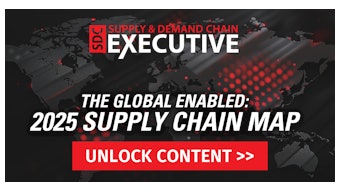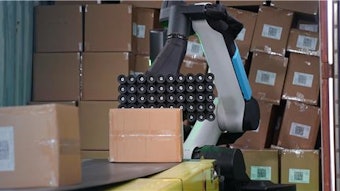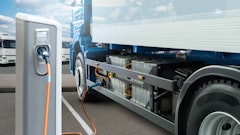
The transition to the low-carbon economy has already begun. The question now is, how quickly will this shift happen? Many clean technologies are mature and more economically viable than fossil fuel alternatives, and the environmental toll of climate change is bearing down on us. The recent U.S. presidential election has introduced uncertainty to the transition’s timeline, but the world cannot afford to delay critical climate action any longer.
The move to a low-carbon economy will touch every corner of our society, from the food we eat and what we buy to how we travel and how things are made. This creates significant risk and opportunity for every business. If you can deliver essential goods and services in a low-cost, low-carbon way, you will gain market share.
The situation’s urgency, growing public awareness of climate change and the absence of federal leadership on climate will amplify public pressure on businesses to act.
An Urgent Situation and Delayed Action
Early in 2024, data hinted that global emissions might have peaked in 2023. Unfortunately, recent analysis indicates yet another increase. If these global emission trends continue over the next 3-5 years, we will exhaust all but one of the Intergovernmental Panel on Climate Change’s (IPCC) pathways to limiting the global average temperature rise to 1.5℃. The remaining pathway requires carbon capture and storage at an unfathomable scale and a complete move away from fossil fuels. Accomplishing these targets will be incredibly difficult and expensive. Delayed action has put us in this position.
Climate change impacts have moved from abstract warnings to reality. About 85% of consumers say climate change is disrupting their lives. As a result, investors, consumers, regulators and markets are paying closer attention to companies’ climate initiatives than ever before.
In the last few years, the U.S. government has introduced some initiatives to address climate change. However, the Trump administration is unlikely to accelerate emissions reduction activities through regulatory action. The president supports increased production of fossil fuels, rather than investing in new, forward-looking clean energy technologies. Because these technologies have not yet achieved economies of scale, a lack of federal investment will hamper their growth and adoption. The government’s opposition to ESG and sustainability initiatives may also curtail regulations like the SEC’s climate disclosure rules.
Without federal guidance, the private sector must take the lead on decarbonization initiatives.
Market Demand for a Low-Carbon Economy
Companies have a lot to gain from transitioning to a low-carbon economy. Consumers and investors demand this change, even if the federal government does not continue actively incentivizing the transition. Investor pressure for supply chain sustainability has surged 25% in five years. Another study found that sustainability is one of the top three purchasing criteria for corporate buyers, and 75% of consumers believe practicing a sustainable lifestyle is important. U.S. survey respondents said they would pay 10% more for environmentally friendly products.
Renewable energy makes business sense, too. These sources are cheaper and less subject to dramatic price swings than fossil fuels, while also reducing transition risks in the supply chain. Bloomberg projects that market dynamics alone will drive renewables to account for 50% of energy production in the next five years.
Taking no action will be costly to the planet and the bottom line. McKinsey estimates that failure to reduce emissions could put 20% of a company’s profits at risk by 2030 because of the increased push toward sustainability.
Companies are taking action toward this goal. Optera research found that 91% of companies report emissions data publicly or to regulators and customers, and 73% have established science-based targets for emissions reduction. Thousands of companies are engaged in carbon management activities.
Supplier Engagement, Education and Responsibility
Scope 3 emissions — those generated by an organization's value chain — offer companies the biggest opportunity to make meaningful carbon reductions in the next few years. According to Ivalua data, 60% of organizations characterize their scope 3 reporting as a “best guess,” but estimating emissions will not drive the progress we need to stave off disaster.
Companies must engage with their value chain to collect supplier- and product-specific data rather than rely on general industry averages. However, merely obtaining this information to satisfy reporting requirements is insufficient. The time for quantifying emissions is past — we must now use this information to build and execute aggressive reduction initiatives. Actions might include partnering with more sustainable vendors, streamlining the supply chain or collaborating with supply chain partners.
For many years, large companies financially supported supply chain partners’ decarbonization activities. However, economic conditions and regulatory compliance are forcing companies to redirect this spending. Suppliers will increasingly bear the responsibility for managing their own emissions reduction efforts. Businesses that don’t elevate their sustainability practices risk their competitiveness and established partnerships.
When direct funding isn’t viable, companies must empower their partners to reduce emissions through education. Many organizations do not fully understand the business imperative of sustainability, reducing their dedication to decarbonization. For example, in our efforts to support companies in complying with the EU’s Carbon Border Adjustment Mechanism, we found a large proportion of suppliers did not know their obligations under the law. Education is critical to closing this gap and enabling more meaningful engagement with emissions reduction initiatives.
AI Will Transform Emissions Tracking and Forecasting
AI will be a valuable tool in driving meaningful emissions reductions. AI-powered carbon management solutions can process massive emissions datasets, filling in gaps and providing more accurate, defensible emissions data. These tools can uncover trends and highlight reduction opportunities to support actionable strategies.
AI truly shines in its predictive capabilities, especially for scope 3 emissions. By considering global events and external influences, AI models will offer unprecedented foresight into future emissions trends. These capabilities will enable companies to make proactive, data-driven decisions to mitigate climate impacts.
No Time to Waste
The fight against climate change requires an overwhelming global response. Our future is on the line. Failing to decarbonize in the next five years will force us to take far more drastic measures to curb the global temperature rise, which will impose tremendous costs, hardship and uncertainty on future generations.
As a society, we have a history of accomplishing great things when it’s absolutely necessary. I have faith that we’ll rise to the challenge.


























